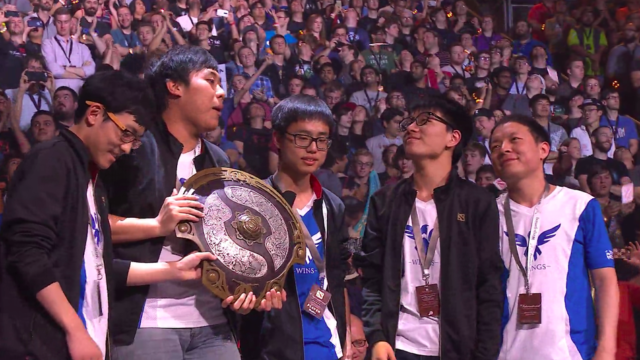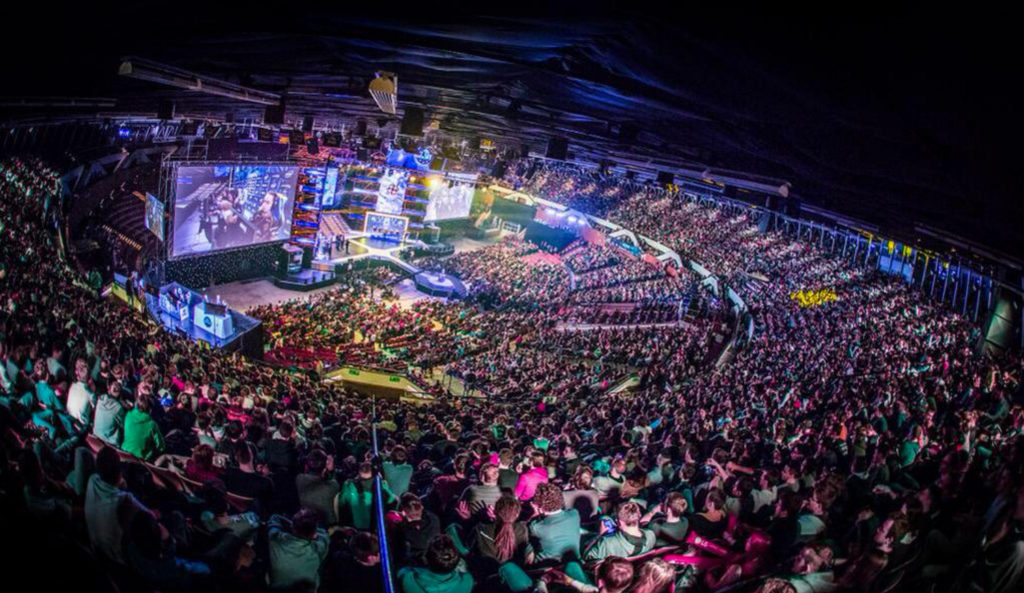ESports is at an all-time high, showing the world that it is anything but a passing fad. In 2016, eSports shattered records for viewership, prize pools and revenue—attracting high-dollar sponsorships, high-profile acquisitions and turning gamers into superstars. With over 213.8 million viewers and earning nearly a billion dollars in revenue, 2016 was an eSports year to remember.
Records Are Made To Be Broken
Activision Blizzard’s acquisition of Major League Gaming (MLG) last December has proven to be a smart move—the publisher’s Counter-Strike: Global Offensive Major Championship (CS:GO Major) generated new viewership records during its March 30 to April 3 broadcast from Columbus, Ohio, with audiences generating 71 million video views and watching an incredible, record-breaking 45 million hours of live broadcast. CS:GO Major also set a new record of 1.6 million concurrent viewers across over-the-top (OTT), web, mobile and in-game streaming formats. The previous CS:GO Major record was 34 million hours viewed and 1.3 million concurrent viewers, which occurred at the 2015 CS:GO Major in Cologne, Germany. This year’s was the first CS:GO Major held in North America, with gamers competing for a $1 million prize pool.
Dota 2‘s The International 2016 held in Seattle, Washington from August 3 to 13 boasted the largest prize pool to date—a whopping $20.8 million. This year’s champions, Wings Gaming, took home the lion’s share of $9,139,002.00 proving that yes, Mom, playing video games is a real job. The next-highest eSports payout this year was for League of Legends at $5.1 million, while Smite and Heroes of the Storm both hosted tournaments to the tune of $1 million each.

Calling All Hopefuls
Also launched this past December—EA’s new Competitive Games Division focuses not just on the best of the best, but those still climbing the championship ladder. “Our vision for competitive gaming is pretty unique,” EA’s chief competition officer, Peter Moore told Venturebeat. “We want to make stars out of all our players. Competitive gaming is a pyramid. At the very top of that there are several hundred players who make a full-time living playing games like DOTA 2, League of Legends, or Counter-Strike. In our case, Madden and FIFA have full-time professional players, as well as a few Battlefield players but our real focus is going to be further down that pyramid—not just the top professionals.”
Activision Blizzard surprised fans worldwide by announcing its Overwatch League during BlizzCon—creating opportunities across the country for hopefuls to compete for spots on professional teams complete with contracts, salaries and all the dreams they can muster.
Move Over For Mobile
While consoles and PC may be the eSports platform of choice for now, mobile has been creeping up as an accessible, popular and profitable method, as well. Video game developers like Supercell (Clash Royale) and third-party companies such as Mobcrush, Skillz and Super Evil Megacorp are extending the idea of competition from young men in a large stadium to anyone, anywhere.
“Mobile will ultimately be the platform over the next five to ten years that truly enables eSports to become mass market,” Kristian Segerstrale, COO and executive director at Super Evil Megacorp, developer of Vainglory, told [a]listdaily. “It’s going to be steady growth behind the scenes. . . it gets stronger and stronger and then one day you look back at it and say, ‘Wow, I didn’t see that coming.'”
A majority of this year’s eSports revenue came from Asia, at $328.6 million, according to SuperData, as did viewership. The analyst firm further predicts that eSports revenue will continue to grow steadily over the next few years, reaching $1.4 billion by 2019, but brands should not try to capture that excitement haphazardly.
“Gaming is increasingly popular because it offers a different type of entertainment experience,” Superdata CEO, Joost van Druenen told [a]listdaily. “With its success over the last few years, a host of newcomers to the industry seek to capture some of its magic. But merely stickering a celebrity or brand on a mediocre game is naive. When companies tell me they’re ‘doing eSports’ I cringe, because it tells me they are clueless with regards to building up a fanbase and a degree of authenticity in the experience. Precisely because games are interactive and establish a dialogue between game makers and players, there is a degree of authenticity that, in my opinion, is largely missing from many of the traditional forms of entertainment. You can’t fake it as easily in games.”
Learn everything you need to know to invest in today’s fastest-growing media channel—Competitive Gaming and eSports on 2.16.17 in Los Angeles. Go to alistsummit.com for more info.

